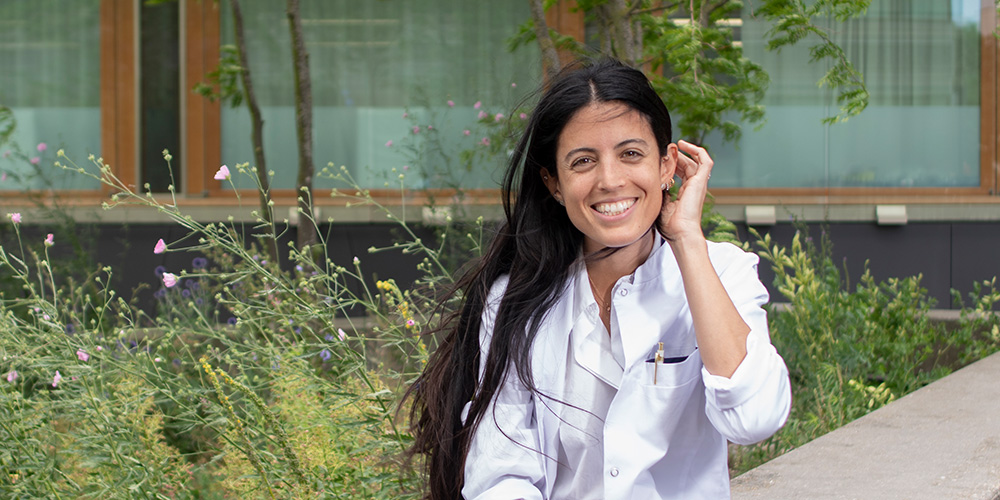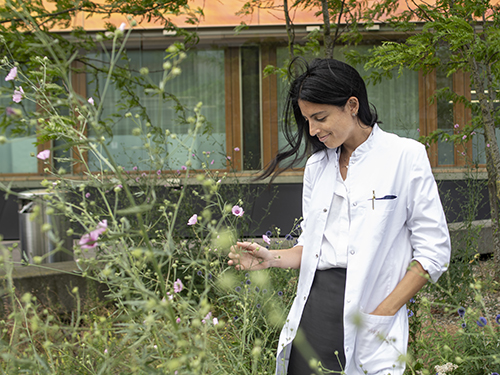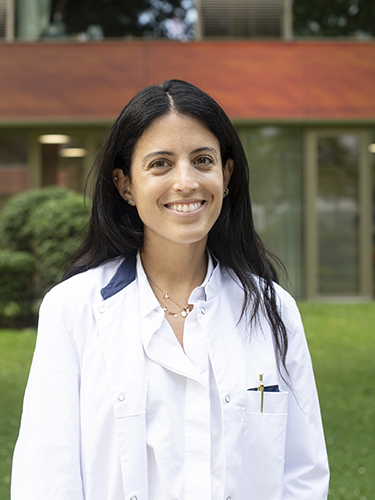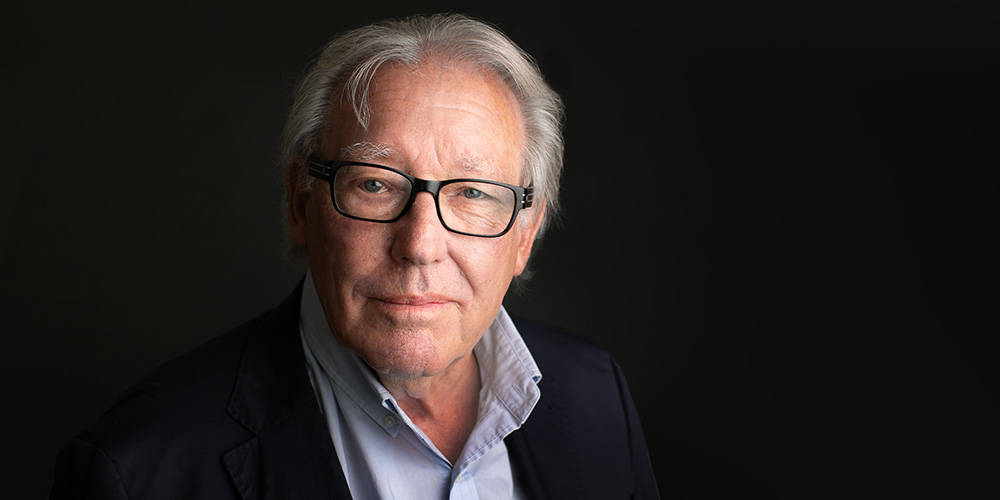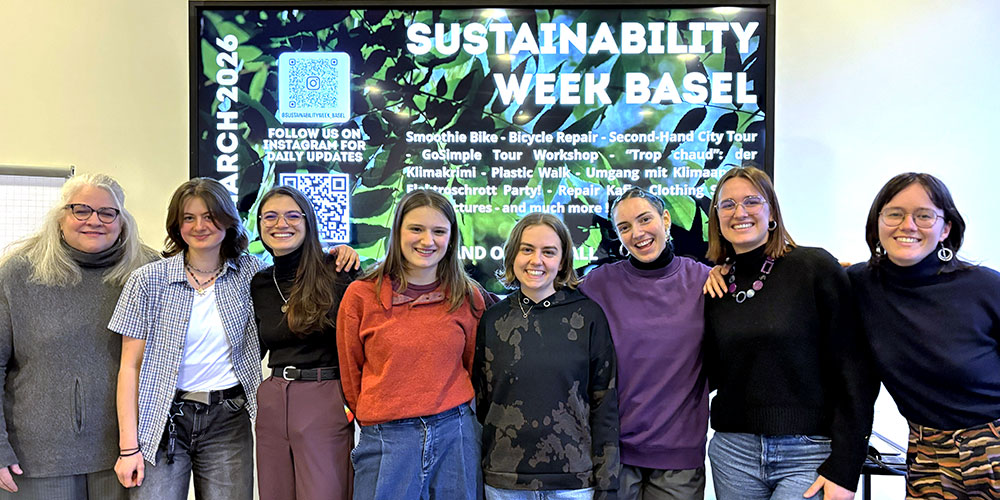In Focus: Chiara Minotti wants to better protect premature babies against infections
Chiara Minotti loves ballet and the cultural diversity of the three-country region. But her greatest passion is medicine for the youngest among us. The PhD student is researching ways to prevent or treat infections in premature babies.
07 August 2025 | Tobias von Rohr
Amazing. This word runs through Chiara Minotti’s mind every time she enters the Neonatology Department in Basel. “Of course, it’s an intensive care unit, but this is precisely where peace and quiet are most needed, and often found even in the most hectic moments,” she says. For her, this ward of the University Children’s Hospital Basel (UKBB) is among the nicest neonatology departments she has ever attended.
Chiara Minotti is a pediatrician. However, she is not currently working clinically: Since 2023, she has been part of Professor Julia Anna Bielicki’s research team at the Department of Clinical Research of the University of Basel and the pediatric research center at the UKBB. The 33-year-old PhD student’s research focuses on the prevention of infections in premature babies. She wants to gain a deeper understanding of how the most vulnerable infants can be protected from serious infections. And she is researching ways to improve their treatment. To this end, she is working closely with Professor Sven Schulzke and his team in the Neonatology Department at UKBB.
Working together with parents
“For premature babies in particular, infections are a major risk,” says Minotti. Parents naturally play a key role in her research. “In a situation like this, we’re all part of a team working together,” she says. It is important to give parents enough time to provide information and to be available to answer their questions. As a result, many develop a positive attitude toward research.
When she sits in an austere meeting room at UKBB and talks about her research, she is brimming with enthusiasm. And if Minotti struggles to find clarity at work despite her motivation, she grabs her sneakers and heads out for a run. “Creativity requires time and, above all, rest. When everyday life is too noisy, I often long for more space to think,” she says.
Chiara Minotti was born in Italy and studied medicine there. She soon realized that she was particularly interested in pediatrics and decided to become a pediatrician. After completing her studies in Bologna, training as a specialist in Padua and working as a clinician and researcher in Modena, she was determined to pursue research in the field of neonatal infections. Because, as Minotti says, “I find working in neonatology very rewarding and exciting.”
Protective skin-to-skin contact
The fact that she is now working at UKBB is anything but a coincidence. “I really wanted to join Julia Anna Bielicki’s research group,” she says. Here, she can research the topic of her choice. She is particularly pleased that she can therefore also be part of the European NeoIPC project and the NeoDeco study. In this EU-funded project, several neonatal departments in Europe are investigating what is known as kangaroo care, i.e. skin-to-skin contact between newborns and their parents. The researchers want to find out whether this close contact can help prevent infections.
“I wouldn’t give up the opportunity to work in Basel for anything in the world,” says Minotti. Not only because she can research her favorite topic here, but also because she feels very much at home in the region. The 33-year-old speaks four languages. In addition to her mother tongue Italian, she can and must use English, French and German on a daily basis. “I love living here – especially because the languages mix so wonderfully,” she says. Minotti lives with her partner in Colmar, where he also works as a doctor. She commutes to work by train and is delighted that she can then find everything she likes in Basel. “I like the many museums and I’m interested in architecture,” she says.
Another of Minotti’s loves can also be found here: ballet. “I studied classical ballet, which is why I always enjoy performances at Theater Basel,” she says with a twinkle in her eye. When her medical studies started to take up too much time, she had to put aside her great passion for dancing herself. “That’s why I always love watching the major ballet companies,” she says. She tries to combine the two worlds whenever possible. While recently visiting Vienna for a conference, she found time to attend a performance at the State Opera.
Minotti’s research is still budding. After completing her PhD, she would like to combine clinical work with research – and hopefully pursue an academic career. She never wants to move away from research, stressing that “For me, research and clinical work cannot be separated – they always go hand in hand.”
In Focus: the University of Basel summer series
The In Focus series showcases young researchers who play an important role in advancing the university’s international reputation. Over the course of several weeks, we will profile academics from various fields – a small representative sample of the more than 3,000 doctoral students and postdoctoral researchers at the University of Basel.

